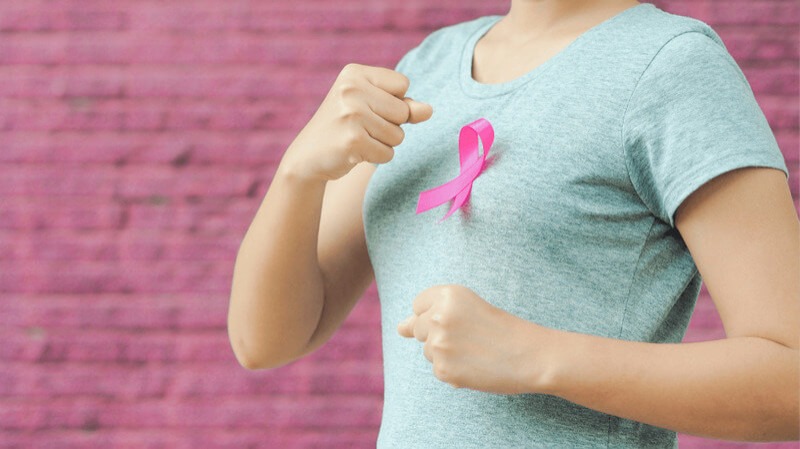Breast cancer is the most common cancer among women in India, accounting for nearly 14% of all cancers in the country. With a growing number of cases and rising mortality rates, breast cancer poses a significant public health challenge. Early detection, awareness, and access to quality treatment can improve survival rates, yet India continues to struggle with several barriers. This blog explores the current scenario, challenges, and solutions to tackling breast cancer in India.
Rising Burden of Breast Cancer in India
According to the National Cancer Registry Programme (NCRP), India reports over 1.78 lakh new breast cancer cases annually. Urban areas witness a higher incidence compared to rural regions, primarily due to lifestyle changes, delayed pregnancies, reduced breastfeeding, and increased exposure to hormonal therapies. However, the mortality rate remains disproportionately high, as nearly 50% of cases are diagnosed in advanced stages.
Why Are Cases Increasing?
Several factors contribute to the increasing burden of breast cancer in India:
- Lifestyle Changes: Sedentary lifestyles, obesity, smoking, and alcohol consumption have escalated risk factors.
- Delayed Childbirth & Reduced Breastfeeding: Late pregnancies and lower breastfeeding rates impact hormonal balance, raising the risk.
- Genetic Factors: Family history and genetic mutations (BRCA1 & BRCA2) contribute to susceptibility.
- Lack of Awareness: Many women neglect early warning signs due to social stigma and limited education about self-examinations.
Challenges in Breast Cancer Diagnosis and Treatment
Late Diagnosis
More than 50% of breast cancer cases in India are diagnosed at Stage 3 or 4, drastically reducing survival chances. A lack of routine screenings and hesitancy in seeking medical advice often lead to delayed detection.
Limited Access to Healthcare
Rural and economically weaker sections face difficulties accessing specialized cancer treatment. Many regions lack well-equipped oncology centers, making early intervention difficult.
Financial Burden
Breast cancer treatment, including surgery, chemotherapy, and radiation, is costly. Many patients struggle with affordability, especially those without health insurance.
Social Stigma
The cultural perception of breast cancer in India discourages open discussions. Fear of mastectomy, concerns about marital prospects, and societal taboos prevent many women from seeking timely medical help.
The Importance of Early Detection
Early detection significantly improves survival rates. Here’s how:
- Self-Examinations: Women over 20 should conduct monthly breast self-examinations.
- Clinical Breast Examinations: Routine check-ups by healthcare professionals are recommended every 3 years for women in their 20s and 30s, and annually for women over 40.
- Mammograms: Women above 40 should undergo mammograms every 1-2 years, especially those with a family history of breast cancer.
Advancements in Breast Cancer Treatment
Modern medical advancements have improved breast cancer treatment, making it more effective and less invasive. The key treatments include:
- Surgery: Lumpectomy (removing only the tumor) or mastectomy (removing the entire breast) based on severity.
- Radiation Therapy: Targeted radiation to eliminate residual cancer cells post-surgery.
- Chemotherapy: Drug treatment to kill cancer cells, often used before or after surgery.
- Hormone Therapy & Targeted Therapy: Used for hormone-receptor-positive breast cancer cases, reducing recurrence risk.
The Way Forward: What Needs to Be Done?
Spreading Awareness
National campaigns should focus on educating women about early symptoms and encouraging regular screenings.
Affordable and Accessible Healthcare
Government and private healthcare sectors must work together to make cancer care more affordable, especially in rural areas.
Better Insurance Coverage
Expanding insurance schemes to cover breast cancer treatment will reduce financial burdens on patients.
Encouraging Research and Innovation
Investment in cancer research and new treatments, including personalized medicine, will improve patient outcomes in the long run.
Conclusion
Breast cancer in India is a growing concern, but with the right strategies—awareness, early detection, and improved treatment accessibility—it can be tackled effectively. Regular check-ups, healthy lifestyle choices, and breaking social stigma can save countless lives. If you or a loved one notices any unusual changes in the breast, consult a healthcare professional immediately. Early action can make all the difference.

